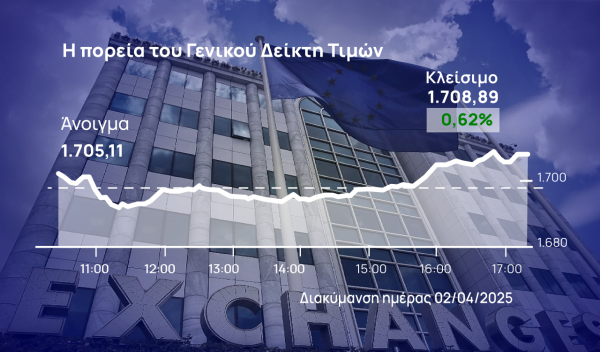
Thousands of investors have been driven out of the mutual funds market after the outbreak of the war in Ukraine and the worsening of the energy crisis, while sales of new shares have also fallen sharply.
As banking sources point out, this behavior is directly linked to the course of stocks and bonds.
“Just as at the beginning of the pandemic in 2020 when the markets collapsed, so since last February, liquidations have been recorded, while new production has also been limited to very low levels” bank sources underscore.
Statistics from the Association of Institutional Investors are indicative of these trends. In the five weeks after 20 February, net outflows had exceeded 100 million euros.
Thus, all capital that had been placed in mutual funds since the beginning of the year until that moment (net inflows of 96 million euros), returned to bank accounts.
With the recovery of markets in April, investors returned, but new liquidations occurred due to the climate of instability and uncertainty that prevailed.
Thus, in June the net outflows reached 50 million euros, while in July, in just 6 working days, outflows reached 14 million euros.
A problem for the banks
This fact creates a concern for bank administrations, as it not only burdens their results with additional interest costs, since the product of liquidation is placed in deposit products, but also creates obstacles to the execution of the business plan that relies to a large extent on the strengthening of supplies from sales of investment programs.
The movement in the mutual fund market explains to some extent the rise in bank deposits in the same period. According to data from the Bank of Greece, in the four months of February – May 2022, deposits belonging to individuals increased by 1.13 billion euros.
During the same period, the decline in long-term deposits slowed down to a remarkable extent.
In particular, the net outflows from approximately 900 million euros on a monthly basis in 2021, were limited in February and March to the levels of 440 million euros and in the two months of April – May to 240 million euros.
As a bank source notes, “if we were to offer interest rates of 0.20% or more today, I believe that time deposits would have already entered an upward trend.”
Latest News

Fitch Ratings Upgrades the Four Greek Systemic Banks
NBG’s upgrade reflects the bank’s ongoing improvements in its credit profile, Fitch notes in its report, including strong profitability, a reduction in non-performing exposures (NPEs), and lower credit losses

Trump to Announce Sweeping New Tariffs Wednesday, Global Retaliation Expected
With Trump's announcement just hours away, markets, businesses, and foreign governments are bracing for the fallout of one of the most aggressive shifts in U.S. trade policy in decades.

Inflation in Greece at 3.1% in March, Eurostat Reports
Average inflation in the eurozone settled at 2.2%, compared to 2.3% in February

Greece’s Unemployment Rate Drops to 8.6% in February
Despite the overall decline, unemployment remains higher among women and young people.

Jerry Kalogiratos Highlights Key Role of Energy Transition and Data Demand in LNG Outlook
Energy transition and the prospects of LNG were discussed at Capital Link’s 19th Annual International Maritime Forum, during a panel discussion with Jerry Kalogiratos (Capital Clean Energy Carriers Corp.)

Santorini Safe and Ready for a Dynamic Tourism Season
Authenticity, cultural heritage, and genuine experiences at the center of Santorini's new promotional campaign

Electricity Bills: Greece Announces Reduced Tariffs Schedule
Greece will now offer lower electricity rates between 11:00-15:00 and 02:00-04:00

Chevron Confirms Eyeing Natural Gas Exploration South of Crete
Chevron recently declared its intent to explore a third area, south of the Peloponnese.

Evangelos Marinakis: A time of change from which shipping can benefit
Speaking at the 19th Annual Capital Link International Shipping Forum Evangelos Marinakis stressed the challenges that shipping faces today

Retail Trade in Greece Up 2.5% in December 2024: ELSTAT
In January 2025, the General Turnover Index recorded a 2.5% increase compared to January 2024. Compared to December 2024, it recorded a significant decline of 18.4%











![Τουρκία: Μεγάλες βλέψεις για παραγωγή ηλεκτρικών οχημάτων [γράφημα]](https://www.ot.gr/wp-content/uploads/2025/03/ot_turkish_autos-90x90.png)











![ΕΛΣΤΑΤ: Αυξήθηκε η οικοδομική δραστηριότητα κατά 15,6% το Δεκέμβριο [πίνακες]](https://www.ot.gr/wp-content/uploads/2025/03/DSC9655-2-1024x569-1-90x90.jpg)

















 Αριθμός Πιστοποίησης
Αριθμός Πιστοποίησης